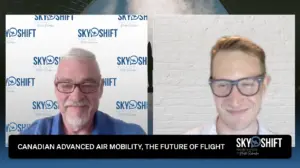Automakers Forced to Adapt to Chip Shortages
Automakers are feeling the pain of a global shortage of semiconductors, forcing companies to halt production of certain vehicles while others are removing some options that rely heavily on chips. Watch below to hear how these automakers are adapting to this shortage.
Host: Let’s get over to Tara Patel. She wrote today’s Bloomberg big take about the chip shortage for US and its impact on automakers has been really clear. Tara, is anyone getting away with this better than others? Is anyone getting hit harder than the rest of the group?
Tara Patel: I think that in terms of carmakers, some of them may be coming out and stating, giving, like Ford, some of the more shocking guidance to the market about just how hard they’re going to be hit. But I think all of them are really feeling the pain. Earlier, we heard VW’s CEO yesterday, we were listening to their big rival talk, the same kind of talk. Assembly lines are being halted. They are doing battle fighting for chips. And they’re in this quarter. It’s the worst that it’s going to be this year, they’re predicting.
Host: So we have a big take, which is a new Bloomberg property that basically delves into something featuring it’s, I think, a fantastic proposition. And today, what the big take is, is a question that we’ve been asking and trying to get to the bottom of, which is if there’s a chip shortage and it keeps on getting worse, why can we just not produce more?
Patel: Well, I think the real answer is that, as in with many crises, is that right now, the damage has already been done. This kind of industry is hugely capital intensive, extremely complicated, highly, highly technical products. And it’s not something that people just decide to invest in, and then they’ll be making their chips next year. Supply chains have deep roots and they’ve been then honed over the decades. And so it’s really just not that simple.
Host: And of course, if this is a longer term problem, automakers can’t just sit and wait for it to fix itself or to get fixed. They have to take action now. So what’s the solution? Is it just focused on more profitable cars? Put your chips into cars that are going to get you a higher margin.
Patel: That’s part of the solution, and that’s what they’re doing. That’s what many automakers have said. We are focusing on the ones, the cars we can make the most money. And they’re also coming up with a little tweaks. Peugeot were saying they’re putting analog speedometers, the old style speedometers, back on a small hatchback model. So that they can save chips for another model. Another another option that is being removed by Nissan and other automakers is built in navigation systems, which use a lot of chips. And this is something that consumers will get a break. A lot of carmakers are saying, OK, if you don’t get the know, the higher tech, you can get a discount on your car. But that also means that that automakers will you know, it might hurt their margins as well.
*Bloomberg contributed to this content
—
Follow us on social media for the latest updates in B2B!
Twitter – @MarketScale
Facebook – facebook.com/marketscale
LinkedIn – linkedin.com/company/marketscale









